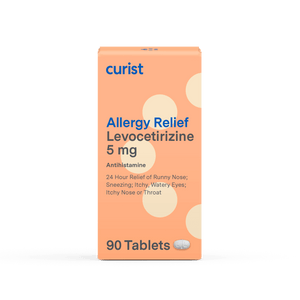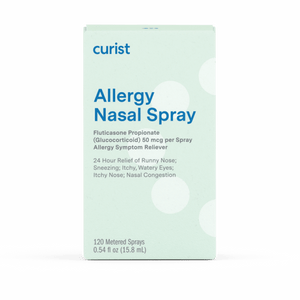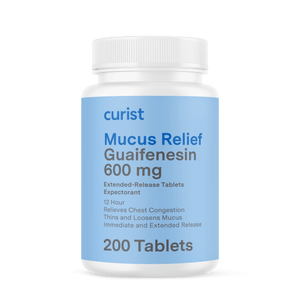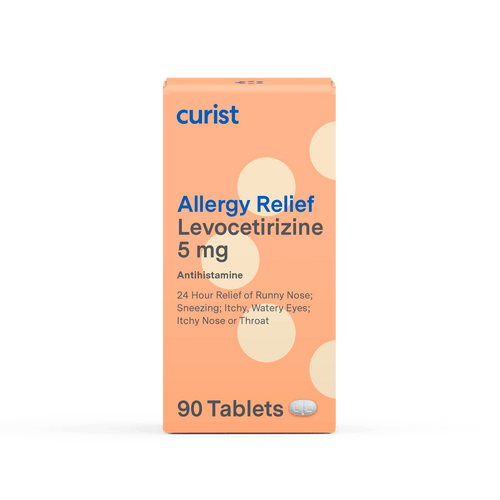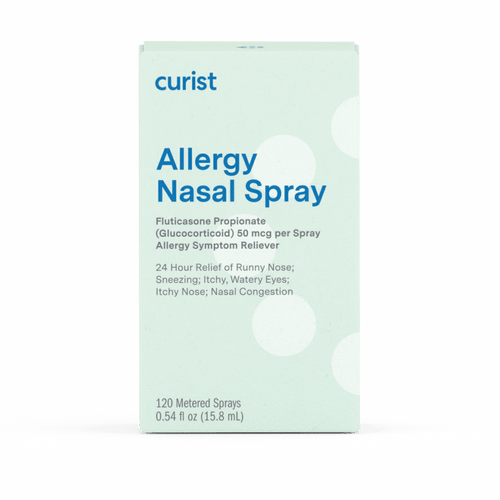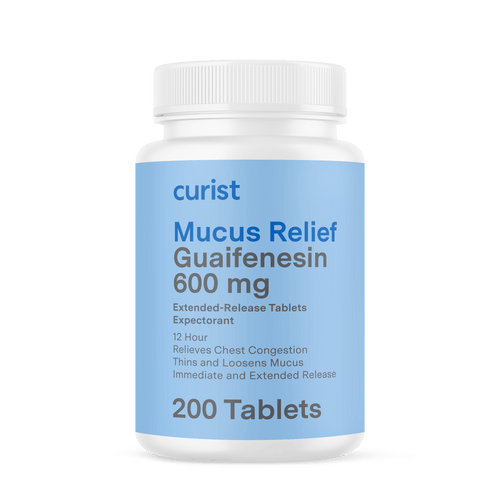Curist delivers over-the-counter medicines to your door at a fraction of the price of traditional brands. We hope everyone stays safe and healthy during this time.
Have you been feeling excessive pressure centered around your nose and forehead area? You may be experiencing sinusitis. Sinusitis can be treated in many different ways. Keep reading to find the best remedy for you!
What is Sinusitis?
Sinusitis is the inflammation or swelling of the tissue lining your sinuses. Now what exactly are your sinuses? Sinuses are the air-filled spaces in the skull located behind your forehead, nasal bones, cheeks, and eyes. Sinuses make thin mucus that drains out of the nose to keep the nose free and clean of bacteria. When sinusitis occurs, the spaces that are normally filled with air, get blocked and filled with fluid. This buildup of fluid allows for bacteria to grow and may cause an infection.
What are Common Signs and Symptoms of Sinusitis?
Sinusitis causes many different symptoms. The common signs and symptoms of sinusitis include:
- Nasal inflammation
- Thick, discolored mucus from the nose
- Drainage down the back of the throat
- Congested nose
- Pain, tenderness, or swelling around the nose, eyes, cheeks, or forehead
- Ear pain
- Headache
- Cough
- Fatigue
Types of Sinusitis: Acute vs Subacute vs Chronic vs Recurrent Sinusitis
Sinusitis can come in many different forms, which all depend on how long symptoms last and the type of symptoms you may encounter. The different forms of sinusitis are acute bacterial sinusitis, subacute sinusitis, chronic sinusitis, and recurrent sinusitis. Here’s more detail on each type of sinusitis:
- Acute bacterial sinusitis: A sudden onset of cold symptoms such as runny nose, stuffy nose, and facial pain that lasts longer than 10 days or seems to improve, but then returns. Acute sinusitis may last 2-4 weeks.
- Subacute sinusitis: Subacute sinusitis is sinusitis that may last 4-12 weeks.
- Chronic sinusitis: Chronic sinusitis may include symptoms like nasal congestion, drainage, facial pain or pressure, and decreased sense of smell for at least 3 months.
- Recurrent sinusitis: Recurrent sinusitis is sinusitis that occurs over and over, typically occurring several times a year.
Now that we know more about sinusitis, what can cause sinusitis?
What Can Cause Sinusitis?
- Sinusitis can occur because of several reasons such as: Swelling in the nasal area due to allergies or the common cold. If you are not sure whether you have a cold or allergies, learn more from our article Common Cold vs Allergies: Symptoms & Treatments.
- Nasal polyps
- Blocked drainage ducts
- Asthma
- Abnormal nose structures
- Deviated septum
- Allergies or hay fever
When Should I See A Doctor for Sinusitis?
Some of the symptoms of sinusitis can be managed from over-the-counter medicines. However, if you have the following problems, make sure to reach out to your healthcare provider:
- If you’ve had sinusitis many times and it does not respond to treatment
- If it lasts more than 10 days
- Sinusitis associated with fever (>100.4F)
- Severe headache
- Forehead swelling
- Confusion
- Vision changes
If you are not feeling these symptoms and have a more mild case of sinusitis, keep reading for treatment options!
Treatment Options for Sinusitis
Sinusitis can be treated in several ways depending on the severity of your symptoms.
- Simple Sinusitis:
- Decongestants (avoid if you have high blood pressure) (e.g. Curist Allergy Nasal Spray (fluticasone))
- Over-the-counter allergy medications (e.g. Curist Allergy Relief (levocetirizine))
- Nasal Saline Solutions
- Drink Fluids
- If symptoms last more than 10 days, it is important to see a doctor for sinusitis. A doctor may prescribe medication for sinusitis, including:
- Antibiotics
- Decongestants
- Prescriptions nasal sprays
- Leukotriene antagonists
- Other at-home remedies that may help include:
- Using a humidifier or inhaling steam from a pan of warm water
- Using a warm compress around the nose/sinuses
What is the Best Antihistamine for Sinusitis?
Histamine in our body is released as an inflammatory response to foreign pathogens such as allergens (pollen, dander, mold, etc.). Histamine acts as a protective agent and induces our body to make more mucus. This build up of mucus in our sinuses is what can lead to sinusitis. Antihistamines (which is a class of allergy medications) can help stop the release of histamine and lower the mucus being produced. The effectiveness of specific antihistamines is different from person to person. Therefore, the right option can be subjective. However, if you are looking for a fast-acting, non-sedative, 24-hour antihistamine, Curist Allergy Relief is the best antihistamine for sinusitis. Other antihistamines are available as well, but may cause more sedation.
Another option to treat sinusitis instead of antihistamines is an allergy nasal spray such as Curist Allergy Nasal Spray. This steroid nasal spray not only can help reduce nasal congestion symptoms but can also help reduce the inflammation in the nose to lessen the pressure caused by sinusitis.




